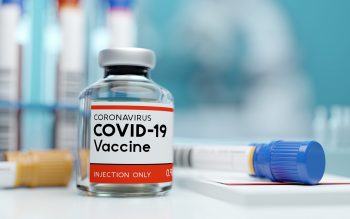Last week, we posted Part 1 of this blog series. Therein, you will find a discussion of employment discrimination laws that are potentially triggered when an employee requests to telework for  health, safety, or disability reasons. In Part 2, we examine how the state of businesses during the COVID-19 pandemic impacts the discussion of whether telework is a reasonable accommodation.
health, safety, or disability reasons. In Part 2, we examine how the state of businesses during the COVID-19 pandemic impacts the discussion of whether telework is a reasonable accommodation.
For many years, employers have asserted that regular attendance at the job site is an essential job function, and employers have often been successful with this argument and, consequently, avoided providing telework as a reasonable accommodation. See, e.g., EEOC v. Ford Motor Co., 782 F.3d 753, 775 (6th Cir. 2015) (collecting cases). Prior guidance from the Equal Employment Opportunity Commission (“EEOC”) stated that considerations as to whether telework is a reasonable accommodation “include whether there is a need for face-to-face interaction and coordination of work with other employees; whether in-person interaction with outside colleagues, clients or customers is necessary; and whether the position in question requires the employee to have immediate access to documents or other information located only in the workplace.” Work at Home/Telework as a Reasonable Accommodation, EEOC Guidance (Feb. 3, 2003). Because of the spread of COVID-19, many businesses have now operated on a telework model and done so successfully. In fact, the Brookings Institute suggests up to half of American workers were working from home in April of this year. Telecommuting Will Likely Continue Long After the Pandemic, Brookings Institute (Apr. 6, 2020). Now that teleworking has been widely, and often effectively, used, the conversation around teleworking as a reasonable accommodation has evolved.
In September, the EEOC offered its guidance on the subject. What You Should Know About COVID-19 and the ADA, the Rehabilitation Act, and Other EEO Laws, EEOC (Sept. 8, 2020). Therein, the EEOC recognized, “There may be reasonable accommodations that could offer protection to an individual whose disability puts him at greater risk from COVID-19.” Id. § D.1. An employer, however, is not automatically required to grant telework as a reasonable accommodation simply because the employee was allowed to telework for the purpose of slowing the spread of COVID-19. In sum, “[i]f there is no disability-related limitation that requires teleworking, then the employer does not have to provide telework as an accommodation.” Id. § D.15. If the employee has such a limitation and teleworking is a reasonable accommodation, the employer must show telework imposes an undue hardship.
 Given the increased use of telehealth during the Public Health Emergency (“PHE”), the Centers for Medicare and Medicaid Services (CMS) passed a final rule modifying the rules around when Medicare will reimburse for mental health visits. A previous blog post analyzed Federal laws and rules governing telehealth visits, including the general Medicare rules applicable during the PHE. This post analyzes the changes to the Medicare telehealth reimbursement rules for mental health treatment that begin the day after the PHE ends. Note, there are different rules when treatment includes for substance abuse disorders. If you have questions about telemedicine rules or would like to discuss this blog post, you may contact our healthcare and business law firm at (404) 685-1662 (Atlanta) or (706) 722-7886 (Augusta), or by email, info@hamillittle.com. You may also learn more about our law firm by visiting www.hamillittle.com.
Given the increased use of telehealth during the Public Health Emergency (“PHE”), the Centers for Medicare and Medicaid Services (CMS) passed a final rule modifying the rules around when Medicare will reimburse for mental health visits. A previous blog post analyzed Federal laws and rules governing telehealth visits, including the general Medicare rules applicable during the PHE. This post analyzes the changes to the Medicare telehealth reimbursement rules for mental health treatment that begin the day after the PHE ends. Note, there are different rules when treatment includes for substance abuse disorders. If you have questions about telemedicine rules or would like to discuss this blog post, you may contact our healthcare and business law firm at (404) 685-1662 (Atlanta) or (706) 722-7886 (Augusta), or by email, info@hamillittle.com. You may also learn more about our law firm by visiting www.hamillittle.com. Total Health Law Blog
Total Health Law Blog


 Previous blog posts provided an overview of the Centers for Medicare and Medicaid Services’s (“CMS”)
Previous blog posts provided an overview of the Centers for Medicare and Medicaid Services’s (“CMS”)  Our previous blog post provided an overview of the Centers for Medicare and Medicaid Services’ (“CMS”) Vaccine Mandate and addressed two basic questions of the mandate:
Our previous blog post provided an overview of the Centers for Medicare and Medicaid Services’ (“CMS”) Vaccine Mandate and addressed two basic questions of the mandate:  Many of our healthcare and business law firm’s clients have questions about whether CMS’ vaccine mandate (a.k.a. the “federal healthcare worker vaccine mandate”) applies to their workforce. The vaccine mandate landscape is evolving. For instance, the OSHA vaccine mandate applicable to 100+ employee-businesses was overruled by the Supreme Court. The analysis herein is current as of the date this blog is posted and subject to change as agencies and courts release new decisions.
Many of our healthcare and business law firm’s clients have questions about whether CMS’ vaccine mandate (a.k.a. the “federal healthcare worker vaccine mandate”) applies to their workforce. The vaccine mandate landscape is evolving. For instance, the OSHA vaccine mandate applicable to 100+ employee-businesses was overruled by the Supreme Court. The analysis herein is current as of the date this blog is posted and subject to change as agencies and courts release new decisions. Last week, our blog post discussed the
Last week, our blog post discussed the  The COVID-19 pandemic has impacted employment in the United States. Now that the Country is reopening and people are returning to work, a question on everyone’s mind is: “Can my employer require me to get the vaccine”? The Equal Employment Opportunity Commission (“EEOC”) recently released guidance answering that question. This post intends to outline the EEOC’s position; it does not address the potential impact of state and local rules on this topic. If you have questions regarding this blog post,
The COVID-19 pandemic has impacted employment in the United States. Now that the Country is reopening and people are returning to work, a question on everyone’s mind is: “Can my employer require me to get the vaccine”? The Equal Employment Opportunity Commission (“EEOC”) recently released guidance answering that question. This post intends to outline the EEOC’s position; it does not address the potential impact of state and local rules on this topic. If you have questions regarding this blog post,  What is telehealth versus telemedicine? What laws and rules govern the practice of telemedicine? Has COVID-19 impacted telemedicine? Etc. This post intends to outline some of the rules and laws relevant to practitioners, including the impact of HB 307 on telehealth in Georgia. If you have questions regarding this blog post or
What is telehealth versus telemedicine? What laws and rules govern the practice of telemedicine? Has COVID-19 impacted telemedicine? Etc. This post intends to outline some of the rules and laws relevant to practitioners, including the impact of HB 307 on telehealth in Georgia. If you have questions regarding this blog post or  laboratories. A compliance question faced by many of our clients, particularly those who conduct COVID-19 testing, is how to properly maintain and share patient records. Herein, we note some of the rules around retaining and sharing patient records under Georgia law for clinical laboratories.
laboratories. A compliance question faced by many of our clients, particularly those who conduct COVID-19 testing, is how to properly maintain and share patient records. Herein, we note some of the rules around retaining and sharing patient records under Georgia law for clinical laboratories. health, safety, or disability reasons. In Part 2, we examine how the state of businesses during the COVID-19 pandemic impacts the discussion of whether telework is a reasonable accommodation.
health, safety, or disability reasons. In Part 2, we examine how the state of businesses during the COVID-19 pandemic impacts the discussion of whether telework is a reasonable accommodation. employers are unsure how to respond to such requests on both a practical and legal level. This two-part series addresses some legal considerations for employers and employees regarding teleworking as a way to minimize health risks posed by COVID-19 for individuals with disabilities. In Part 1, herein, we provide an overview of the reasonable accommodation laws protecting an employee with a disability.
employers are unsure how to respond to such requests on both a practical and legal level. This two-part series addresses some legal considerations for employers and employees regarding teleworking as a way to minimize health risks posed by COVID-19 for individuals with disabilities. In Part 1, herein, we provide an overview of the reasonable accommodation laws protecting an employee with a disability.